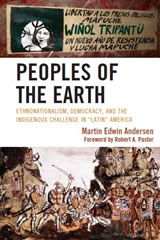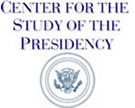Appreciate the congrats for being right on radical Islamic terrorism, I don't want congrats, I want toughness & vigilance. We must be smart!
Two days later, on Tuesday evening, Trump was standing on the stage of a sports arena in North Carolina telling his audience where the responsibility for the Orlando bloodbath lies. "Political correctness is deadly," he fulminated. "We have to control the amount of future immigration into this country." Trump was reading from notes, apparently to temper his words. But even his controlled sentences were poisoned, meant to appeal to the baser instincts and fears of the 9,000 people in the arena. There has been "no assimilation" on the part of immigrants, Trump called out.
The audience erupted in ecstasy and began chanting "USA, USA, USA!" The crowd was loud, aggressive and uncompromising -- just like their idol on stage. Trump turned 70 years old on that Tuesday, but there has been no indication that he has become mellower or wiser with age.
Can you really seek to cynically gain political profit from the deaths of 49 mostly gay and lesbian human beings, murdered by the New York-born son of Afghan immigrants? Can you really utter a self-congratulatory "I told you so" in light of the worst mass shooting in American history
Trump can. The question is becoming increasingly pressing as to whether America, a proud, great and powerful country, will fall into the hands of an egomaniac who wants to prevent Muslims from entering the land and to deport millions of illegal immigrants, a man who seeks to limit freedom of opinion and who has threatened to terminate old friendships across the globe. A whiff of 1950s McCarthyism is in the air, emitted by a candidate who is stoking hatred against Muslims and immigrants to a degree never before seen in a presidential campaign. If we "imply that we are at war with an entire religion, then we are doing the terrorists' work for them," US President Barack Obama said following Trump's speech.
The results of this presidential election will have ramifications around the world. It's not just about the construction of walls and societal peace in a divided country, it is also about possible trade wars with Asia, the survival of the trans-Atlantic alliance and America's relationship with the Arab world. In November, the future of the international community is on the ballot.
In the face of the ferociousness of Trump's campaign, his challenger Hillary Clinton seems helpless and debilitated. Thus far, no Trump opponent, including Clinton, has found a way to effectively combat the at times feverish declamations of this political maverick. Just as was the case during the Republican primaries, it again became apparent in the wake of Orlando that Trump's opponents do not have recourse to the same political weapons as Trump does. How can you compete with someone who apparently knows no taboos or inhibitions?
The Voice of Furious Whites
As such, the outcome of this race is completely open. The two presumptive nominees couldn't be any more different from each other. The voice of societal rage against a power-political strategist, an outsider against the establishment, the voice of furious whites against the advocate of a diverse America.
In recent weeks, Trump managed to overtake Clinton in some public opinion polls while the Democratic candidate has the lead in others, most notably in a recent survey released post-Orlando. Trump is shamelessly seeking to take advantage of the uncertainty that has taken hold of American society and is instrumentalizing fears of a new terrorist attack for his campaign. Contrary to expectations, he has not become more presidential or more conciliatory since becoming the presumptive Republican nominee. On the contrary, since Orlando the once hard-and-fast rule -- that the American nation comes together in times of crisis -- seems no longer to apply.
If Orlando was a test of the leadership qualities of a future president, then Trump didn't pass. He broke with the principle of solidarity and brought many of his followers along with him. After Orlando, the US seems to be a country that doesn't even agree anymore on the most American of all values: nationwide support and compassion in moments of tragedy and mourning. In this campaign, society has split into two irreconcilable camps.
Trump is a candidate of rage, supported by the sense many have that something fundamental must change in the United States.
The woman tasked with saving America from Trump is the candidate of reason, supported by the liberal bourgeoisie who want a continuation of Obama's policies of enlightened pragmatism. It isn't yet clear if there is more reason or more rage in today's America.
Clinton is America's last hope. But the longer the campaign lasts, the more questionable it has become whether she can fulfil this hope. Even worse: It is unclear if she is the right candidate for a country in upheaval.
It seems as though Hillary Clinton has always been there. She was first lady, she was a US senator, she was a presidential candidate and she was secretary of state. In 2008, many thought she had a clear path to the presidency -- until she was beat out in the primaries by a virtual unknown by the name of Barack Obama.
She began this campaign too as the presumptive favorite, but stumbled early on over the email affair and faced an unexpected challenge in the form of a 74-year-old senator by the name of Bernie Sanders. His call for a leftist revolution proved surprisingly appealing among many young Democratic voters, including a remarkable number of women who, it had been thought, would gravitate toward the Clinton campaign.
Unequal Means
And now Trump has the initiative, and hasn't proven shy about deriding her and portraying her as a weakling. It is almost impossible for Clinton to reply in kind. She wants to avoid dividing the electorate and is loath to play one group of voters off against another. Reasonable responses are the only possible rejoinder to Trump's baiting of Muslims and other minorities, but her message of conciliation seems fainthearted and impotent against Trump's blustering. It is a battle being fought with unequal means, but what else can she do?
When Hillary Clinton spoke at the Cleveland Industrial Innovation Center on the Monday after the attack in Orlando, she warned in muted tones that it was a day on which all Americans must stand together. She called for limits on the sale of firearms and condemned the wave of violence against mosques that took place after the attacks in Paris and San Bernardino. And for the first time, she uttered the words "radical Islamism," which Trump had demanded but which she had thus far avoided so as not to discredit all of Islam. Clinton declined to go after Trump. "Today is not a day for politics," she said.
But for Trump, it was. He tweeted:





